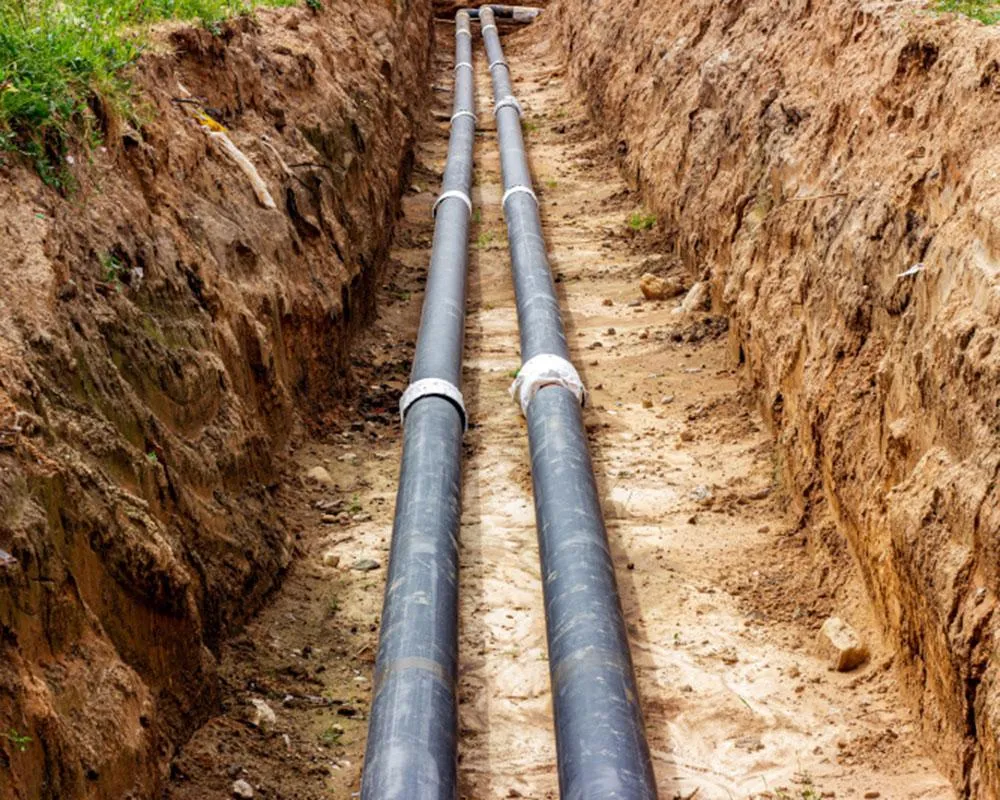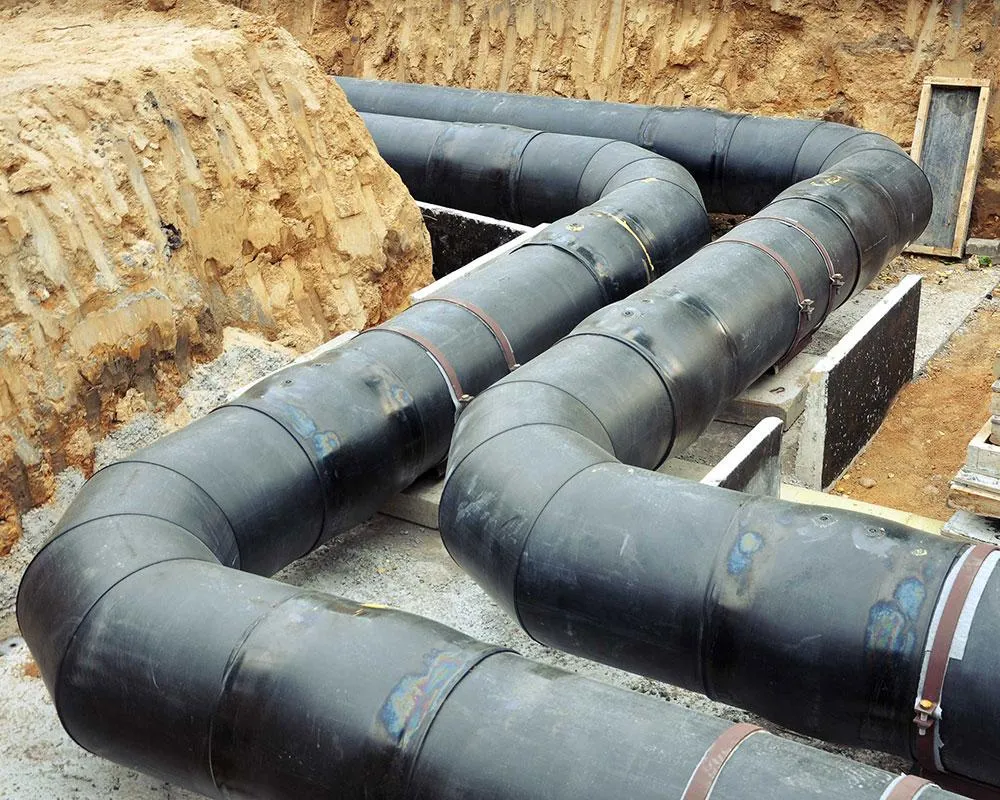
Serving Texas Counties: Collin, Grayson, Dallas, Denton, Rockwall, Fannin and Hunt
Utilities Trenching Near Denton County, Texas
Total Septic is Committed to superior quality and results!

AVOID COSTLY MISTAKES:
Do NOT hire an excavating contractor without first reading our free guide:
The ULTIMATE Excavation & Septic "Success Guide."

Utilities Trenching Near Denton County: Reliable Underground Utility Installation for Residential and Commercial Projects
Utility trenching is one of the most critical parts of any development in Denton County. Whether you’re connecting water lines, running electrical conduit, or installing communication cables, every inch of the trench must be precise, safe, and built to code. When you choose professional Utilities Trenching Near Denton County, Texas, you’re investing in reliability, efficiency, and long-term protection for your property.
How Can We Help?


What Utilities Trenching Near Denton County Involves
Professional trenching includes everything from layout and excavation to compaction and inspection. A typical process may include:
Site preparation and survey layout
Coordination with Texas811 for utility locates
Excavation to the required depth and width
Placement of utility pipes, conduit, or cables
Bedding, shading, and compaction for support
Installation of tracer wires and warning tape
Backfill, surface restoration, and cleanup
Trenching in Denton County must follow Texas codes, ensuring proper separation between gas, water, sewer, and electric utilities.
Benefits of Utilities Trenching Near Denton County, Texas
1. Accuracy and Safety
Professional trenching reduces the risk of damaging existing lines, provides stable backfill, and meets OSHA trench safety standards.
2. Code Compliance
Each trench must meet Denton County and Texas depth regulations for specific utilities. Proper slope, pipe bedding, and backfill keep systems compliant with inspection requirements.
3. Durability and Longevity
Quality trenching prevents pipe movement, collapse, or settling over time—protecting your investment from leaks or future repairs.
4. Efficiency and Cost Control
Experienced crews complete projects quickly, preventing unnecessary downtime or permit delays.
5. Site Protection
By managing drainage and soil movement, your landscape and foundations remain intact and stable.
Understanding Denton County’s Soil and Conditions
Denton County’s ground conditions are a mix of clay, rock, and loam—each presenting unique challenges. Clay expands with moisture and contracts during dry spells, while rocky areas require specialized excavation methods. Skilled trenching teams know how to stabilize the trench, prevent collapse, and maintain grade throughout the process.
Proper trench depth also protects utilities from temperature fluctuations, moisture, and soil movement—essential for reliable performance in Texas weather.
See Our Excavation & Septic Services

✔️ Commercial Excavation
✔️ Residential Excavation
✔️ Demolition
✔️ Dozer work
✔️ Septic inspections
✔️ Septic system pumping
✔️ Septic installs traditional systems
✔️ Septic tanks - aerobic systems
✔️ Septic tanks - Plastic/poly
Quality Services Launched FAST!

✔️ Septic tanks - Concrete
✔️ Sewer repairs
✔️ Trenching
✔️ Utilities Trenching
✔️ Pump Outs Installs
✔️ Maintenance Contracts
What Are You Waiting For?
The Benefits of Hiring a Professional for Utilities Trenching Near Denton County, Texas
1. Local Knowledge
Crews familiar with Denton County know local codes, soil profiles, and inspection routines—ensuring your project meets all Texas regulations without delay.
2. Specialized Equipment
Modern trenching machinery allows precise digging even in challenging terrain, reducing manual labor and keeping your project on schedule.
3. Safety Compliance
Trained crews use trench boxes, shoring systems, and slope control methods to protect workers and prevent accidents—meeting OSHA Subpart P standards.
4. Quality Control
Professional teams document every step, from soil conditions to compaction testing, so you can trust the longevity and compliance of your utility installation.
5. Clear Communication
A dedicated project lead coordinates locates, permits, and inspections—removing confusion and streamlining communication with the county.
The Process for Hiring Utilities Trenching Near Denton County
Step 1: Initial Consultation
You provide the address, project details, and type of utilities needed—water, sewer, gas, electrical, or communication.
Step 2: Site Evaluation
A trenching professional visits the property, evaluates soil type, slope, and access points, and determines the best route for your utility lines.
Step 3: Planning & Permitting
A plan is drafted following Texas and Denton County trenching codes, including depth, separation requirements, and protective measures.
Step 4: Scheduling Texas811 Locates
Before any digging begins, all existing utilities are marked and verified to ensure safety during excavation.
Step 5: Excavation & Installation
The trench is excavated to precise depth, and pipes or conduits are installed with correct bedding and slope. Warning tape and tracer wire are added before backfill.
Step 6: Inspection & Testing
Each line is tested for leaks, pressure, or grade before being backfilled. Inspections ensure compliance with local regulations.
Step 7: Backfill & Restoration
Trenches are compacted in layers to prevent settling, and the surface is restored—whether it’s soil, gravel, or pavement.
Step 8: Final Documentation
As-built drawings, test results, and inspection approvals are provided for your records.
Types of Utility Trenching Projects in Denton County
Residential water and sewer line installations
Commercial electric and gas service trenching
Private development utility corridors
Communication and fiber optic conduit
Irrigation mainlines and control wiring
Power and lighting trenching for parking areas
Each trench is customized to site conditions and utility type—built to function safely for decades.
Key Safety and Quality Standards
Trench Depth: Varies from 18" to 48" depending on the utility type
Separation: Required distances between utilities to prevent interference
Backfill Material: Clean, compactable soil or aggregate based on code
Moisture Management: Proper drainage design to prevent trench saturation
Inspection Requirements: Must meet Denton County and Texas public works standards
Every phase follows Texas safety and engineering standards to keep your property compliant and protected.
Environmental and Site Care
A well-managed trenching project minimizes disruption to your property and the environment. Crews install erosion controls, manage runoff, and ensure no damage to nearby trees, driveways, or existing landscaping. At completion, your site is left clean and level, with all disturbed areas restored.
What You’ll Need to Begin
Before trenching starts, gather these essentials:
Property address and layout or blueprint
List of utilities to install
Preferred connection points (meter, panel, cleanout, etc.)
Any HOA or municipal restrictions
Target completion date or permit deadline
Ready to Begin Utilities Trenching Near Denton County?
Professional Utilities Trenching Near Denton County, Texas ensures your project is done safely, efficiently, and to Texas code. From planning and permits to restoration and inspection, the process keeps your project moving without surprises.
Call to Action:
Start your trenching project today. Request a quote, schedule a consultation, or ask for a site evaluation. Get the dependable underground utility installation your property deserves.
Facebook
Google Plus